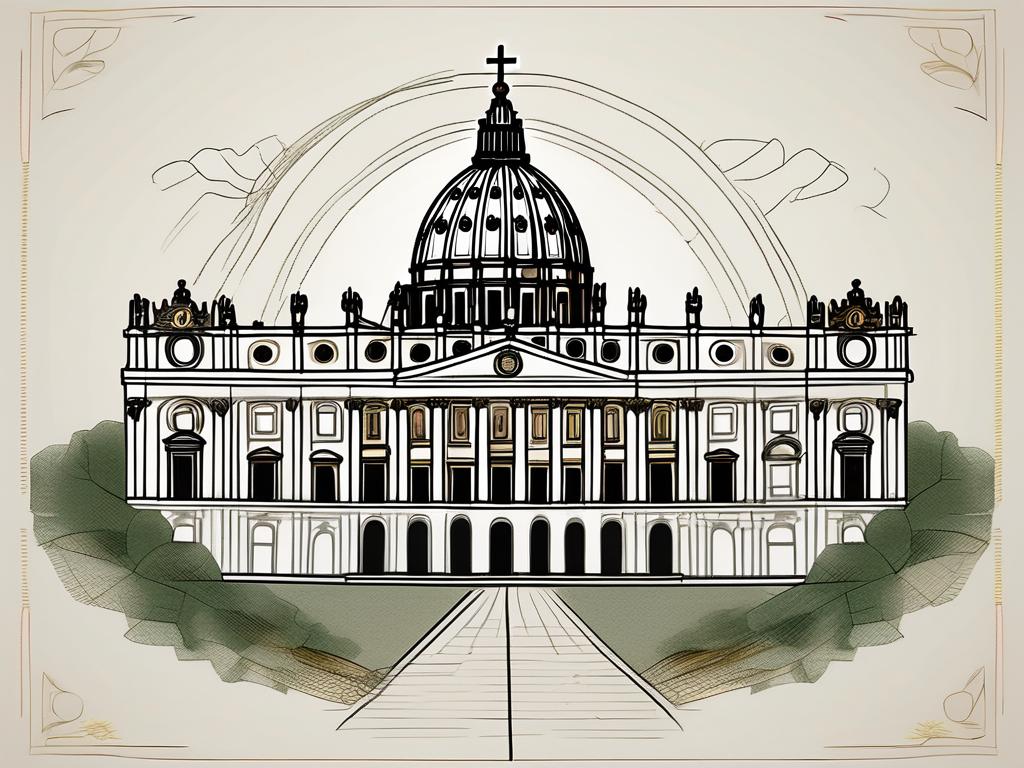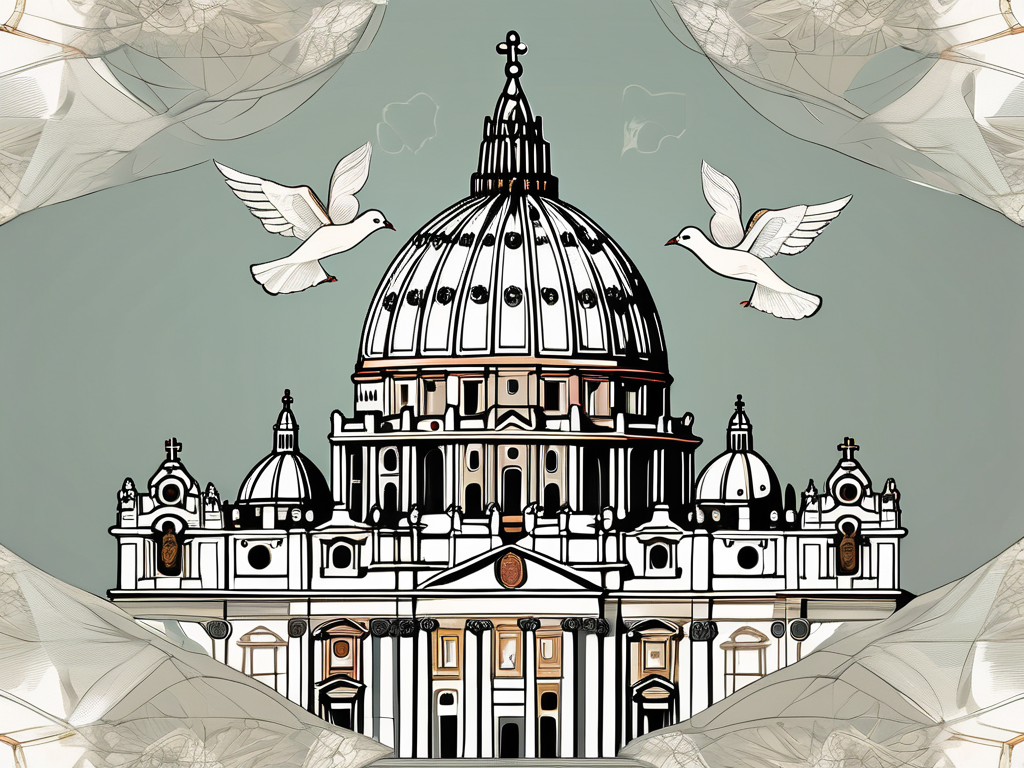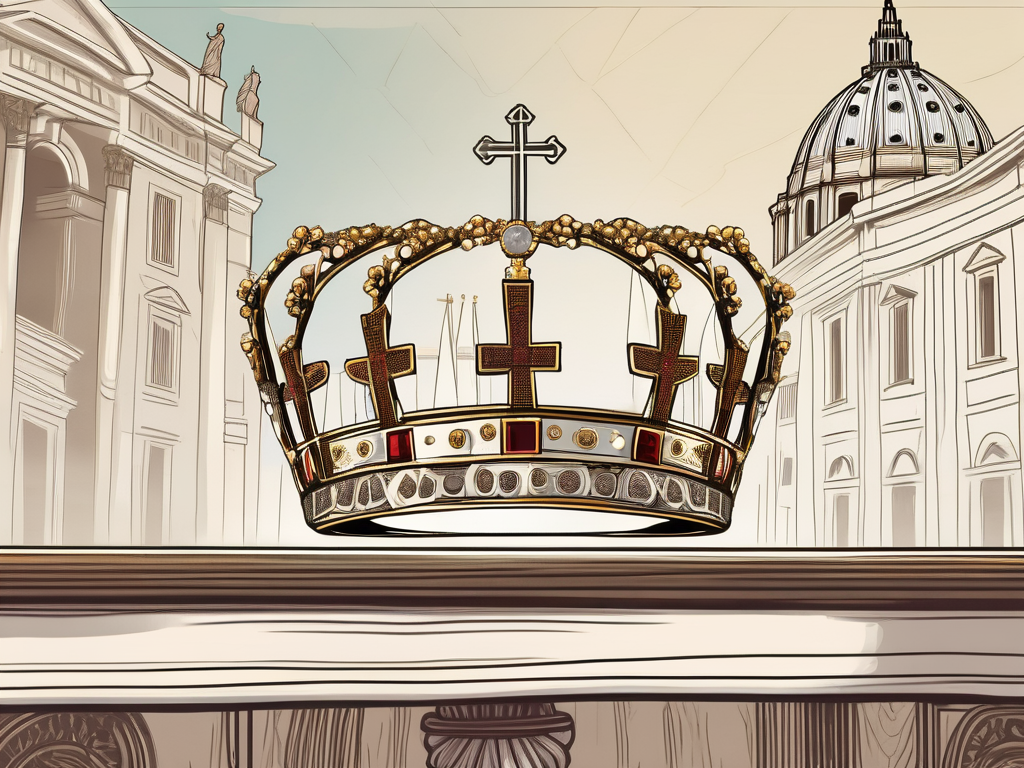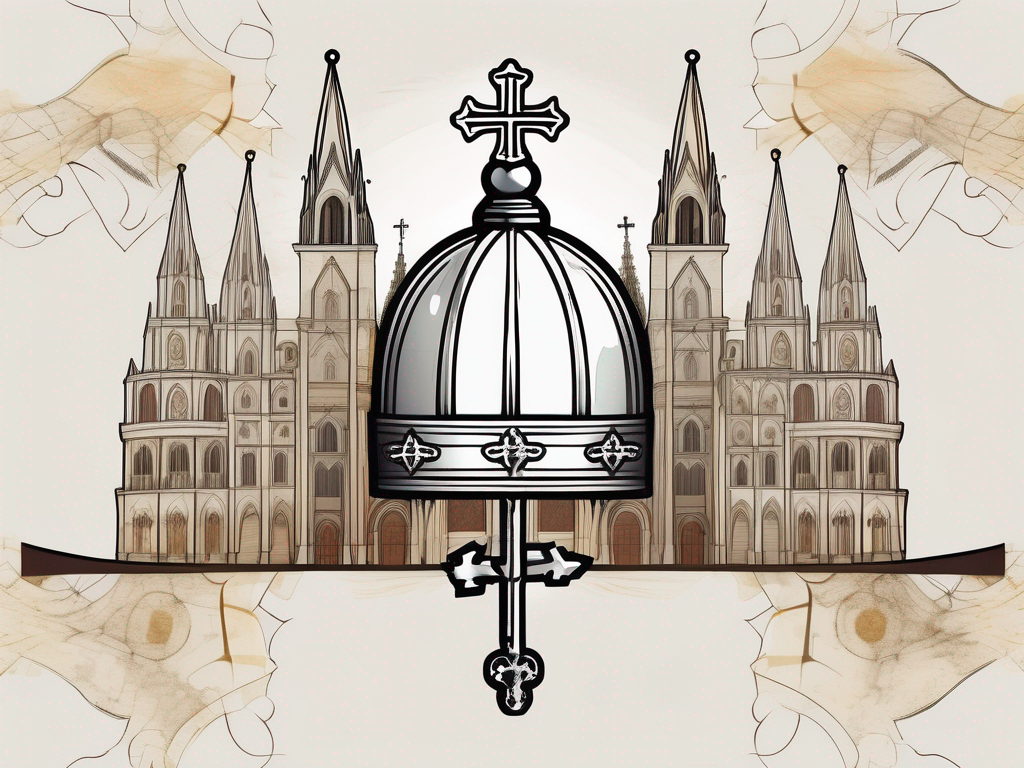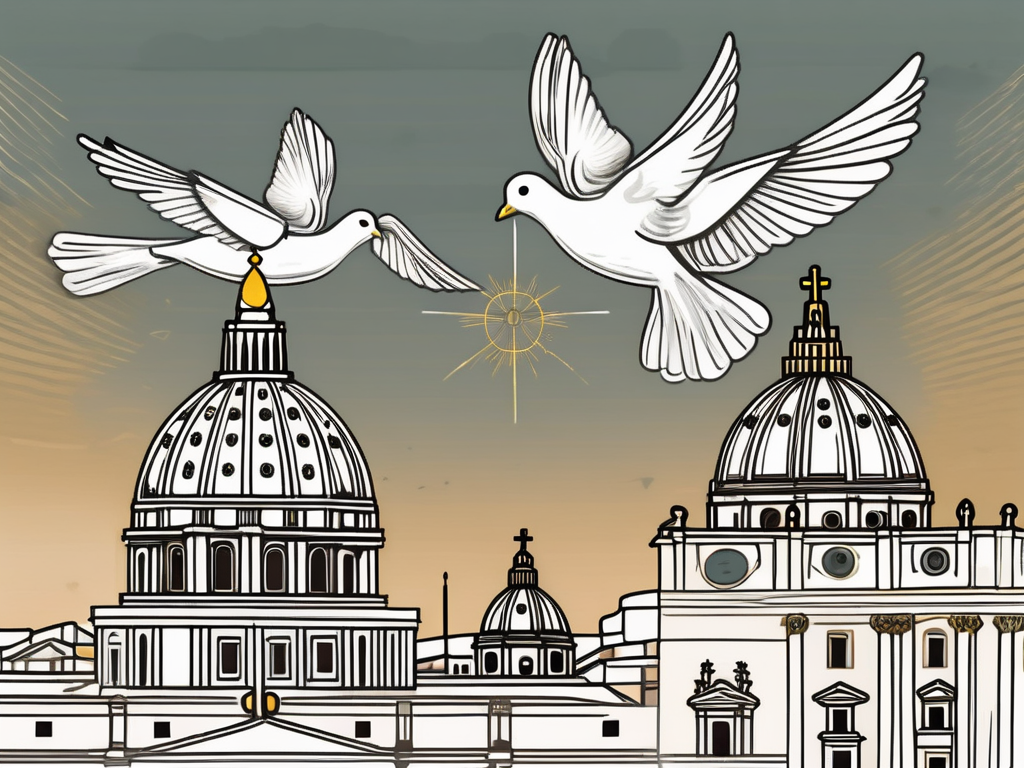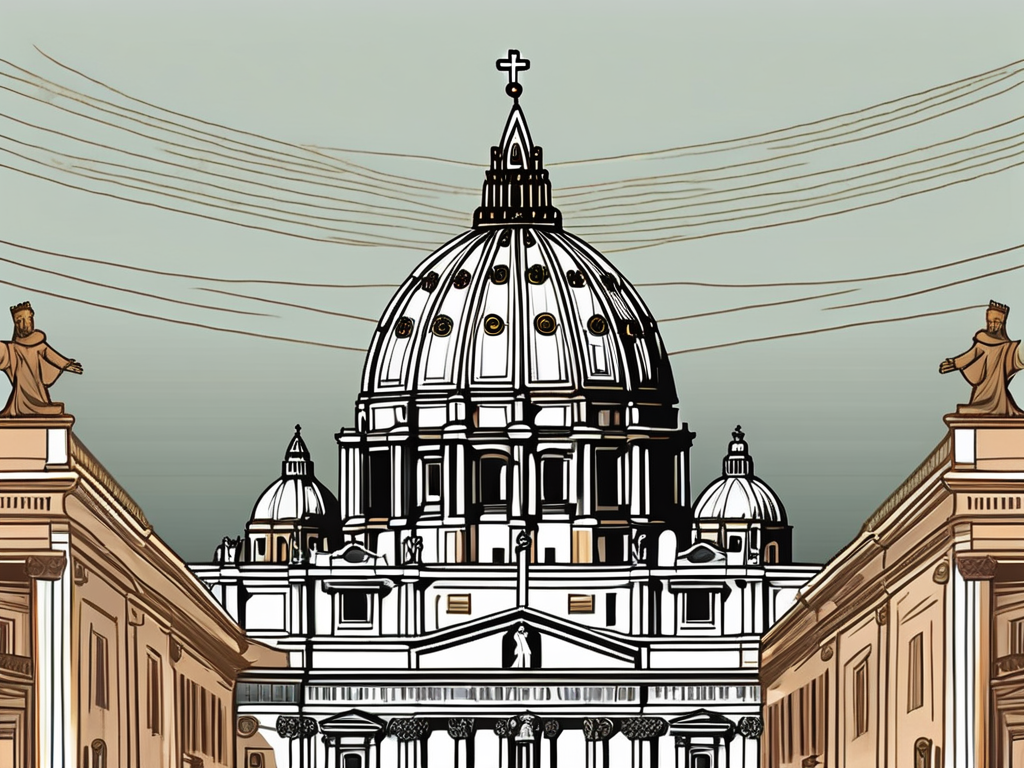Pope Innocent I was a significant figure in the early days of the Catholic Church. His life and contributions have left a lasting impact on the history of Christianity. Let us take a journey back in time to explore the fascinating life and legacy of Pope Innocent I.
Early Life and Education of Pope Innocent I
Pope Innocent I, whose birth name was Innocentius, was born in Rome, Italy, in the year 378. He came from a noble family, with a strong background in Roman society. His parents instilled in him the values of faith and education from a young age.
As a child, Innocentius was surrounded by the rich history and culture of Rome. He would often visit the ancient ruins, marveling at the architectural wonders that stood as a testament to the greatness of the Roman Empire. These experiences sparked his curiosity and ignited a passion for learning.
During his religious education, Innocentius showed exceptional intelligence and a deep devotion to Catholic teachings. He studied under renowned scholars and theologians, gaining a thorough understanding of the faith.
His thirst for knowledge led him to explore various disciplines, including philosophy, literature, and history. He delved into the works of great thinkers such as Plato, Aristotle, and Augustine, seeking to broaden his intellectual horizons.
Innocentius’s dedication to his studies was unmatched. He would spend countless hours in the library, poring over ancient manuscripts and meticulously analyzing theological texts. His relentless pursuit of knowledge earned him the admiration and respect of his mentors.
As he grew older, Innocentius felt a calling to serve the Church. He recognized that his intellectual gifts could be used to further the teachings of Catholicism and contribute to the spiritual well-being of the faithful.
With the support of his family and mentors, Innocentius embarked on a journey of deepening his understanding of the Church’s teachings. He attended theological seminars and engaged in lively debates with fellow scholars, honing his skills in rhetoric and argumentation.
Throughout his education, Innocentius also developed a strong sense of compassion and empathy for those in need. He actively participated in charitable activities, providing assistance to the poor and marginalized members of society.
His unwavering commitment to his faith and his tireless pursuit of knowledge set the foundation for his future role as Pope Innocent I. Little did he know that his humble beginnings and exceptional education would shape him into one of the most influential figures in the history of the Catholic Church.
Ascension to Papacy
In 401, Pope Innocent I was elected as the Bishop of Rome and succeeded Pope Anastasius I. His ascension to the papacy came at a critical time for the Church, as it faced internal conflicts and external threats.
During his early years as Pope, Innocent I faced numerous challenges and controversies. However, he navigated these obstacles with wisdom and grace, earning respect from both clergy and laity alike.
One of the key issues that Pope Innocent I had to address was the growing influence of heretical sects within the Church. These sects, such as the Pelagians and the Donatists, posed a significant threat to the unity and orthodoxy of the Church. Innocent I took decisive action to combat these heresies, convening synods and issuing authoritative decrees to clarify and uphold the true teachings of the Church.
Furthermore, Pope Innocent I played a crucial role in strengthening the authority of the papacy. He firmly asserted the primacy of the Bishop of Rome as the successor of Saint Peter, and he actively engaged with other bishops and patriarchs to assert his authority and resolve disputes. His efforts in consolidating the power of the papacy laid the foundation for the influential role that the papacy would later play in the medieval Church.
Another significant challenge that Pope Innocent I faced was the external threats to the Church. During his pontificate, the Western Roman Empire was in a state of decline, and the Church found itself caught in the midst of political turmoil and invasions. Innocent I skillfully navigated these turbulent times, providing spiritual guidance and support to the faithful, while also working diplomatically with political leaders to protect the Church’s interests.
Moreover, Pope Innocent I was known for his commitment to social justice and charity. He actively promoted the welfare of the poor and marginalized, establishing charitable institutions and advocating for fair treatment of the less fortunate. His emphasis on compassion and mercy served as a powerful example for both clergy and laity, inspiring them to follow in his footsteps and prioritize the needs of the vulnerable.
In conclusion, Pope Innocent I’s ascension to the papacy marked a pivotal moment in the history of the Church. His leadership during a time of internal conflicts and external threats showcased his wisdom, grace, and unwavering commitment to the teachings of the Church. Through his efforts, he not only strengthened the authority of the papacy but also promoted social justice and compassion, leaving a lasting legacy that continues to inspire the faithful today.
Major Contributions to the Church
Pope Innocent I was not only a charismatic leader but also a visionary with tremendous theological insights. His contributions to the Church have shaped its doctrines and practices for centuries to come.
Theological Innovations
One of Pope Innocent I’s notable theological innovations was his emphasis on the primacy of the Bishop of Rome. He firmly believed in the supremacy of the Pope, asserting the authority of the Bishop of Rome over other bishops.
This emphasis on the primacy of the Pope had far-reaching implications for the structure and governance of the Church. It solidified the Pope’s role as the ultimate authority in matters of faith and doctrine, providing a clear hierarchy within the Church.
Furthermore, Pope Innocent I’s theological insights extended to the development of the sacraments. He played a crucial role in defining and refining the sacramental practices of the Church, ensuring their proper administration and significance in the lives of believers.
Additionally, Pope Innocent I played a pivotal role in the development of canon law. He worked tirelessly to establish a set of laws and regulations that would govern the Church and its members.
His efforts in codifying canon law not only provided a framework for the Church’s internal affairs but also contributed to the development of legal systems in Western civilization. The principles and precedents set forth by Pope Innocent I continue to influence ecclesiastical and secular law to this day.
Diplomatic Achievements
Pope Innocent I was also known for his diplomatic prowess. He skillfully negotiated with emperors and other religious leaders to protect the interests of the Church and maintain peace within the Christian community.
His diplomatic achievements extended beyond Rome, as he worked diligently to forge alliances and resolve disputes among various Christian factions. Pope Innocent I truly dedicated his life to promoting unity and understanding among believers.
Furthermore, Pope Innocent I’s diplomatic efforts had a significant impact on the relationship between the Church and the secular powers of his time. Through his negotiations, he secured the Church’s autonomy and independence, ensuring its ability to fulfill its spiritual mission without undue interference.
Moreover, Pope Innocent I’s diplomatic skills were instrumental in navigating the complex political landscape of his era. He successfully mediated conflicts, brokered peace treaties, and fostered dialogue between warring factions, leaving a lasting legacy of peaceful coexistence and cooperation.
In conclusion, Pope Innocent I’s major contributions to the Church encompassed theological innovations and diplomatic achievements. His emphasis on the primacy of the Bishop of Rome and his work in developing canon law shaped the Church’s structure and governance. Additionally, his diplomatic prowess ensured the Church’s autonomy and fostered unity among believers. Pope Innocent I’s legacy continues to resonate within the Church and beyond, influencing theology, law, and diplomacy to this day.
Pope Innocent I and the Fall of Rome
The fall of the Roman Empire marked a tumultuous period in history, and Pope Innocent I found himself at the center of it all.
Role during the Sack of Rome
In the year 410, Rome was invaded and sacked by the Visigoths, led by King Alaric. Amidst the chaos and destruction, Pope Innocent I displayed remarkable courage and leadership.
He offered solace to the citizens of Rome, providing spiritual guidance and material aid to those in need. His unwavering faith and unwavering commitment to their well-being served as an inspiration during this trying time.
Impact on the Church’s Position in Rome
The fall of Rome had a profound impact on the Church’s position in the city. Pope Innocent I worked tirelessly to rebuild and strengthen the Church’s presence, ensuring that it remained a vital force in the midst of political and social upheaval.
Through his leadership and strategic alliances, Pope Innocent I successfully solidified the Church’s position in Rome and laid the foundation for its continued influence in the years to come.
Death and Canonization
In the final years of his life, Pope Innocent I faced declining health. Despite his ailments, he continued to fulfill his duties as the spiritual leader of the Catholic Church.
Final Years and Death
After a long and fruitful tenure, Pope Innocent I passed away on March 12, 417. His death was mourned by believers throughout the Christian world, as they recognized the loss of a remarkable leader and teacher.
Pope Innocent I’s legacy continues to inspire generations of clergy and faithful followers. His unwavering faith, diplomatic skills, and theological insights have left an indelible mark on the Catholic Church and the history of Christianity as a whole.
Canonization and Legacy
In recognition of his exceptional contributions to the Church, Pope Innocent I was later canonized as a saint. His life serves as a shining example of dedication, humility, and unwavering commitment to the faith.
The legacy of Pope Innocent I continues to be celebrated by Catholics worldwide. His teachings and contributions remain influential, reminding believers of the importance of steadfastness and unity in the face of adversity.
As we reflect on the life and legacy of Pope Innocent I, we are reminded of the profound impact one person can have on the course of history. His leadership and wisdom continue to guide the Church, providing a foundation for future generations to build upon.


